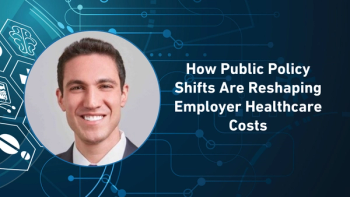
Mud-slinging continues between PBMs and community pharmacists
is the pharma industry a 'innocent' bystander?
Pharmacists United for Truth and Transparency (PUTT; TruthRx.org), a coalition of independent pharmacists and pharmacy owners, has released a toolkit for employers to help them navigate the process of negotiating contracts with pharmacy benefits managers (PBMs). Is it helpful? Maybe, but it’s also an opportunity for independent pharmacists to expose what they say are profiteering tactics practiced by the PBM industry, which is dominated by Express Scripts, CVS-Caremark and Catamaran.
PUTT says its toolkit takes aim at two less-than-transparent practices by PBMs: spread pricing—the difference between the actual cost of a drug paid to the pharmacy and the price charged to the employer drug plan. “Employers generally assume they are paying pharmacy costs plus an administrative fee. But often, prices are marked up without their knowledge, with the ‘spread’ converting into profits for the PBMs,” says Jason Wallace, PUTT president. PUTT says PBMs also are guilty of keeping the majority of rebate dollars received from drug manufacturers for preferential formulary placement, instead of passing those discounts onto plan sponsors.
Wallace says drug manufacturers should care about these claims made against PBMs, as well. “Everyone involved in the sale and distribution of prescription drugs should be paying attention to the practices of PBMs,” Wallace says. “By reforming PBM practices, we also are aiming to reduce any collusion between manufacturers and PBMs that ultimately leads to higher drug prices. We envision an even playing field for pharmacists and for consumers as well. Pharma should encourage transparency in the interest of consumers and providers.”
Meanwhile, the Pharmaceutical Care Management Assn. (PCMA; Washington, DC) has kept up a steady stream of its own claims against retail pharmacies. The latest salvo is a press release stating that “the independent drugstore lobby is continuing to promote an agenda that seeks to ban tools that detect pharmacy fraud, waste, and abuse. This special interest agenda runs counter to the goals of payers, unions, and a bipartisan chorus of policymakers,” citing efforts in the previous Congress to limit independent audits under Medicare, and to maintain prompt-pay practices that shorten the time available to review invoices. The biggest battles currently, though, remain focused on state legislatures, where elected officials are being lobbied to forbid mandatory use of mail order prescription fulfillment (which generally originates with PBMs). Oregon and Oklahoma are two states where this is currently playing out. PCMA also cites a just-released
The National Community Pharmacists Assn. (Alexandria, VA) fired right back, continuing a campaign it has pushed recently claiming that mail-order pharmacies cause excessive wastage by “pushing” auto-refill shipments to patients who don’t need them yet can’t return them. “Patients should be able to choose a pharmacy that best meets their own health needs, without co-pay incentives for mail order. A face-to-face health care experience makes it far less likely that patients would be auto-shipped medications that they didn't request and don't need."
This trench warfare is something that the pharma industry probably wants to be carefully neutral of; having a healthy respect for the commercial power of the bigger PBMs, yet also having a desire to remain in good standing with community pharmacists who are close to customers and patients.
Newsletter
Stay ahead in the life sciences industry with Pharmaceutical Commerce, the latest news, trends, and strategies in drug distribution, commercialization, and market access.



